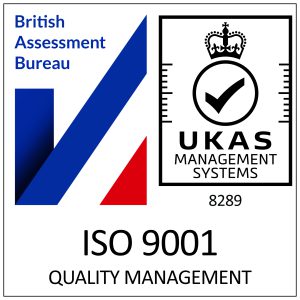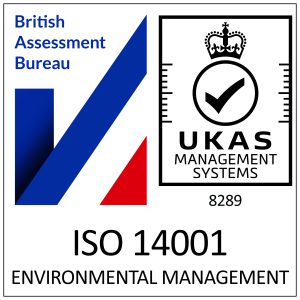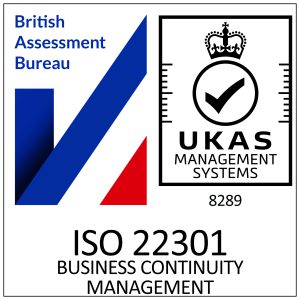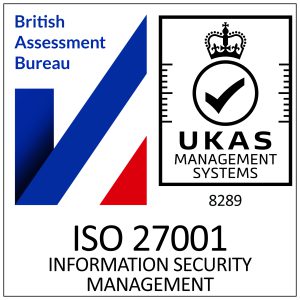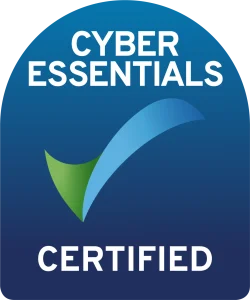Basic, Standard and Enhanced DBS Checks: Everything You Need to Know
Every month, the Disclosure and Barring Service processes over half a million DBS checks across the UK. But not all checks are the same and neither are their processing times. So, if you need to get a DBS check but aren’t sure which one is right for you, you’re in the right place. In this post, we’ll break down the different types of DBS checks, what each one covers, and why some take longer than others.
Basic DBS Check
A Basic DBS check is the foundational level of criminal record screening and represents the least detailed disclosure available. Uniquely, it is the only type of DBS check that individuals can request on themselves anyone living in England or Wales can apply directly without requiring an employer. This makes it ideal for those seeking general employment or self-employment opportunities where enhanced safeguarding is not required.
What Basic DBS checks reveal:
- Unspent criminal convictions only
- Conditional cautions
- Current criminal record snapshot
- No information about historical or “spent” offences (with limited exceptions for serious crimes)
The concept of “spent” convictions is central to understanding Basic DBS checks. Under the Rehabilitation of Offenders Act 1974, eligible offences become “spent” after a specified rehabilitation period, which varies depending on the sentence length and the individual’s age at conviction. For example, a custodial sentence of 12 months or less becomes spent after 12 months (or 6 months if the person was under 18 at conviction). Youth cautions, warnings and reprimands are now immediately spent. Very serious crimes, such as life sentences, sexual offences, or violent offences, never become spent and must always be disclosed. A Basic DBS certificate will not show spent convictions, providing individuals with a fresh opportunity after their rehabilitation period expires.
Key characteristics of Basic DBS checks:
- Processing time: 2-7 days on average
- Application: Self-service online through gov.uk
- Availability: England and Wales only
- Suitable for: Administrative roles, general employment, self-employment, retail, hospitality
Standard DBS Check
A Standard DBS check is a more comprehensive level of disclosure, designed for individuals entering positions of trust and responsibility. Unlike Basic checks, Standard DBS checks can only be requested by employers, individuals cannot apply for these checks independently. The UK Government maintains a statutory list of roles eligible for Standard checks, and it is illegal for employers to request this level without a legitimate business need. Standard checks provide a more detailed criminal history review than Basic checks, including both spent and unspent convictions, alongside cautions, reprimands, and final warnings held on the Police National Computer.
What Standard DBS checks include:
- Spent and unspent convictions
- All cautions, reprimands, and final warnings
- Information filtered through police records
- Professional judgment applied by police regarding disclosure relevance
When processing a Standard DBS check, the police apply a filtering process to assess which information is relevant to the specific role. This means that whilst more convictions may appear than on a Basic check, older minor offences may be excluded if deemed irrelevant. For instance, a caution for a minor public order offence from 15 years ago might not be disclosed if an applicant is applying for an accountancy role. However, serious convictions remain on the record indefinitely and will always be disclosed.
Key characteristics of Standard DBS checks:
Processing time: 5-10 days on average
Application: Employer-initiated only
Roles requiring Standard checks include: accountants, solicitors, barristers, financial services staff, security guards, private investigators, certain government roles
Suitable for: Positions requiring trustworthiness and financial responsibility
Enhanced DBS Check
An Enhanced DBS check is the most thorough and detailed level of criminal record disclosure, and is mandatory for roles involving regulated activity with children or vulnerable adults. This check reveals not only criminal convictions and cautions but also includes police intelligence, information that may not have resulted in a conviction but which police officers reasonably believe is relevant to the role. For example, if an individual has been mentioned repeatedly in burglary investigations but never convicted due to insufficient evidence, this information may be disclosed if they are applying to work as a locksmith.
What Enhanced DBS checks reveal:
- All spent and unspent convictions
- All cautions, reprimands, and final warnings
- Police intelligence considered relevant to the role
- Children’s Barred List check (if the role involves children)
- Adults’ Barred List check (if the role involves vulnerable adults)
The Barred Lists represent a critical component of Enhanced DBS checks for roles involving vulnerable groups. The Disclosure and Barring Service maintains two separate barred lists: the Children’s Barred List and the Adults’ Barred List. Individuals on either list are legally prohibited from working in regulated activities with that vulnerable group. Employers are legally required to check these lists and cannot knowingly employ someone whose name appears on them. Barred list status is determined by the DBS following serious convictions (automatic barring offences), new disclosures during the Enhanced check process, or referrals from employers who suspect misconduct.
Processing stages for Enhanced DBS checks:
- Stage 1: Application form validation and data entry
- Stage 2: Police National Computer (PNC) search
- Stage 3: Barred lists check (if required for the role)
- Stage 4: Local police records search, the most time-intensive stage, as multiple police forces may need to be contacted
- Stage 5: Certificate printing and delivery
The Stage 4 local police search can significantly extend processing times, particularly if an applicant has lived in multiple locations. Police forces must manually search their records and may contact the applicant to clarify information before making disclosure decisions. If applicants have lived abroad or in several different UK regions, the DBS will contact all relevant police forces.
Key characteristics of Enhanced DBS checks:
- Processing time: 14 days average (can be longer for complex cases)
- Application: Employer-initiated only
- Roles requiring Enhanced checks: teachers, social workers, childminders, foster carers, healthcare professionals, care workers, nurses, police officers, youth workers
- Suitable for: Any regulated activity involving children or vulnerable adults
What level of DBS Check do I need?
When deciding what level of DBS check you can request, it is important to consider the following:
- Whether your business provides services for children, the elderly, or vulnerable people
- What the role involves
- How often is the function performed
- The type of working environment (e.g. office vs. direct care work)
A basic DBS check is suitable for roles that do not involve direct contact with vulnerable groups, providing a general overview of unspent convictions. A standard DBS check may be needed for positions of trust, such as accountants or legal professionals, and includes details of both spent and unspent convictions, cautions, reprimands, or warnings. For employees or volunteers working closely with children or vulnerable adults, an enhanced DBS check is required, offering the most detailed level of criminal record information, including any relevant information held by local police. Determining the correct level of DBS check ensures compliance with safeguarding legislation, protects your organisation’s reputation, and builds trust with clients and service users.
DBS Checks for Different Workforces
DBS check requirements differ significantly across workforce categories, with employers responsible for understanding which level of screening applies to their specific roles and sector. For organisations working with children, an enhanced DBS check is mandatory, as this provides the most comprehensive criminal record disclosure and access to the Children’s Barred List, ensuring safeguarding compliance and protecting young people from harm. The adult workforce, particularly those in care homes, adult social services, or healthcare settings, typically requires standard or enhanced DBS checks to verify suitability for roles involving vulnerable adults. Beyond these primary categories, specific sectors such as financial services, security, or positions requiring trustworthiness may mandate standard DBS checks even without direct contact with vulnerable populations.
Understanding DBS check eligibility and timing is crucial for employers:
- Requesting the wrong level wastes resources and creates compliance gaps
- Obtaining unnecessarily high levels of screening increases costs and delays recruitment
- Regular policy reviews ensure alignment with changing legislation and industry standards
Organisations must regularly review their DBS policy and workforce requirements to remain compliant with evolving safeguarding practices and role responsibilities, ensuring both legal compliance and effective protection across all employment levels.
To check what DBS Check you need please contact us at 0333 880 5331, you can also use the following tool to check what type of DBS Check you need: https://www.gov.uk/find-out-dbs-check















